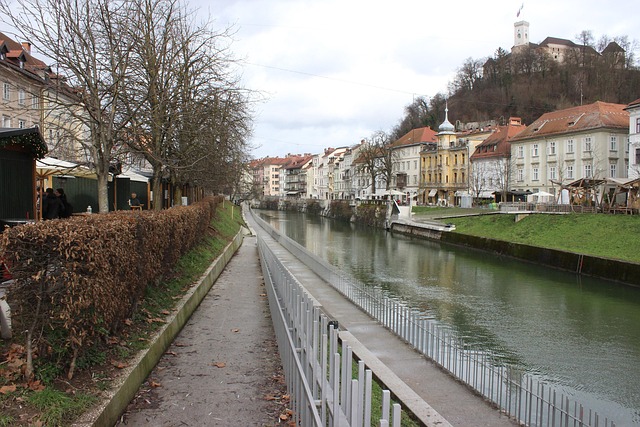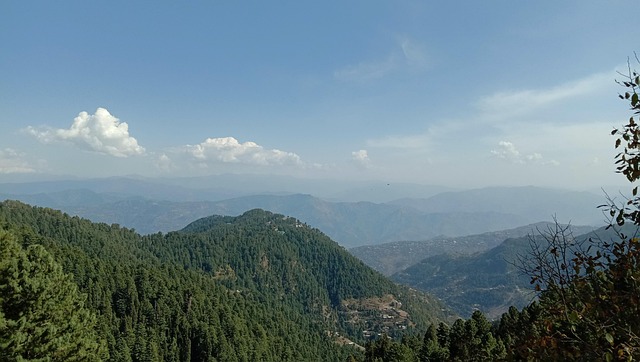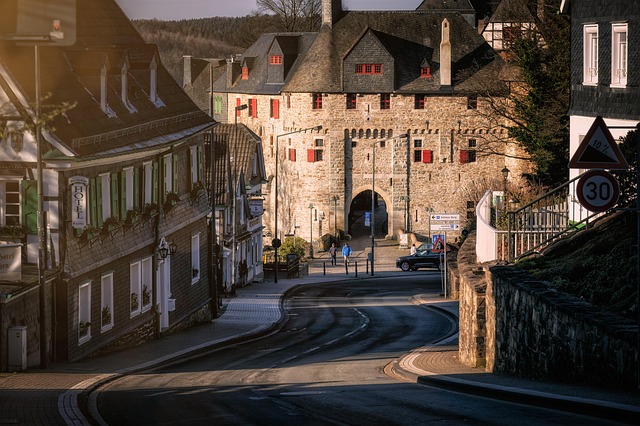Karachi, as a dense urban center, faces unique noise pollution challenges due to high population density, traffic, and industrial areas. Sound levels often exceed safe limits, varying across neighborhoods and amplified by topography. Tipu Sultan Road serves as a case study, highlighting the impact on residents' quality of life. Measuring sound levels is crucial for developing tailored noise control strategies, including green spaces, traffic management, and community advocacy, to mitigate health risks and enhance the city's livability.
In the bustling metropolis of Karachi, noise pollution has emerged as a significant environmental concern. This article delves into the noise levels prevalent on Tipu Sultan Road, a lively yet densely populated urban corridor. We explore the scope of noise pollution in Karachi, using this case study to highlight its impact on local communities and offer strategic solutions for mitigating noise in urban areas, ultimately enhancing the quality of life for all Karachis.
- Understanding Noise Pollution in Karachi
- Tipu Sultan Road: A Case Study
- Measuring and Monitoring Sound Levels
- Impact on Local Communities
- Strategies for Mitigating Noise in Urban Areas
Understanding Noise Pollution in Karachi

Karachi, as a vibrant and bustling metropolis, faces unique challenges when it comes to noise pollution. The city’s dense population, heavy traffic, and numerous industrial areas contribute to an ever-present auditory landscape that can often surpass safe limits. Understanding this issue is crucial for the well-being of its residents.
Noise levels in Karachi vary widely across different neighborhoods. Highly populated areas near markets and industrial hubs tend to experience higher noise pollution, affecting both the quality of life and public health. The city’s unique topography also plays a role; narrow lanes and close proximity of buildings can amplify sounds, creating a labyrinthine soundscape that permeates even residential areas. By raising awareness and implementing effective noise control measures, Karachi can strive for a more balanced and peaceful urban environment.
Tipu Sultan Road: A Case Study
Tipu Sultan Road, a bustling thoroughfare in the heart of Karachi, presents an intriguing case study for understanding urban noise pollution. The road, known for its vibrant markets and heavy traffic, often becomes a cacophony of sounds, from honking vehicles to lively vendors shouting promotions. This unique environment offers valuable insights into the challenges and potential solutions for managing noise levels in densely populated cities like Karachi.
The road’s diverse landscape, with both residential areas and commercial hubs, amplifies the noise issue. Local residents often face difficulties in maintaining peaceful living spaces due to the constant din from passing vehicles and lively street activities. Moreover, the impact extends beyond individuals; it affects the overall well-being of the community, potentially leading to increased stress levels and sleep disturbances. By examining Tipu Sultan Road’s unique dynamics, urban planners and policymakers can gain crucial insights into developing effective noise control strategies tailored to Karachi’s specific needs.
Measuring and Monitoring Sound Levels

Measuring sound levels is a crucial aspect of understanding the noise pollution in any urban area, including Karachi’s Tipu Sultan Road. Professionals often employ specialized equipment like sound level meters to accurately gauge decibel levels at different locations along the road. These devices provide real-time data, allowing authorities and researchers to identify areas with excessive noise and take necessary actions.
Regular monitoring of sound levels can help track changes over time, especially after implementing noise reduction measures. By comparing current data with historical records, cities like Karachi can evaluate the effectiveness of their noise control strategies and make informed decisions to create a more peaceful living environment for residents.
Impact on Local Communities
The noise levels along Tipu Sultan Road in Karachi have significant implications for the local communities. Prolonged exposure to high noise pollution can lead to various health issues, including hearing loss, stress, and sleep disturbances. For residents living adjacent to this bustling thoroughfare, it’s a constant struggle to find peaceful moments amidst the hustle and bustle.
Karachi’s vibrant yet labyrinthine urban landscape is characterized by heavy traffic and bustling businesses, making noise control a complex challenge. The impact on communities is multifaceted, affecting not just physical health but also mental well-being. Local folk often face difficulties in conducting daily activities, from communication to relaxation, due to the persistent din from vehicles, construction sites, and nearby industrial areas.
Strategies for Mitigating Noise in Urban Areas

In urban areas like Karachi, where Tipu Sultan Road is located, noise pollution is a significant concern. Mitigating noise requires a multi-faceted approach involving both individual actions and government initiatives. One effective strategy is to create green spaces and plant trees along busy roads. These natural barriers can absorb sound waves, significantly reducing noise levels for nearby residents. Additionally, implementing traffic management techniques such as one-way streets, speed bumps, and dedicated bike lanes not only improves safety but also contributes to a quieter environment.
Another crucial step is to encourage the use of noise-reducing materials in construction. This includes using double-glazed windows, soundproof insulation, and quiet concrete or asphalt for road surfaces. In Karachi, local communities can play an active role by organizing noise monitoring events and advocating for stricter noise control regulations. By combining these strategies, urban areas like Tipu Sultan Road can strive for a more peaceful and livable environment for all its inhabitants.
Karachi, as a vibrant metropolis, faces unique challenges when it comes to noise pollution, as evidenced by our case study on Tipu Sultan Road. Understanding the impact of excessive noise levels is crucial for fostering healthier urban environments. By implementing effective monitoring and mitigating strategies, we can enhance the quality of life for local communities. This includes encouraging responsible development practices, promoting quieter transportation options, and raising awareness about the importance of noise-conscious behavior. Together, these steps can transform Karachi into a more peaceful and livable city, ensuring its bustling energy doesn’t come at the cost of its residents’ well-being.
